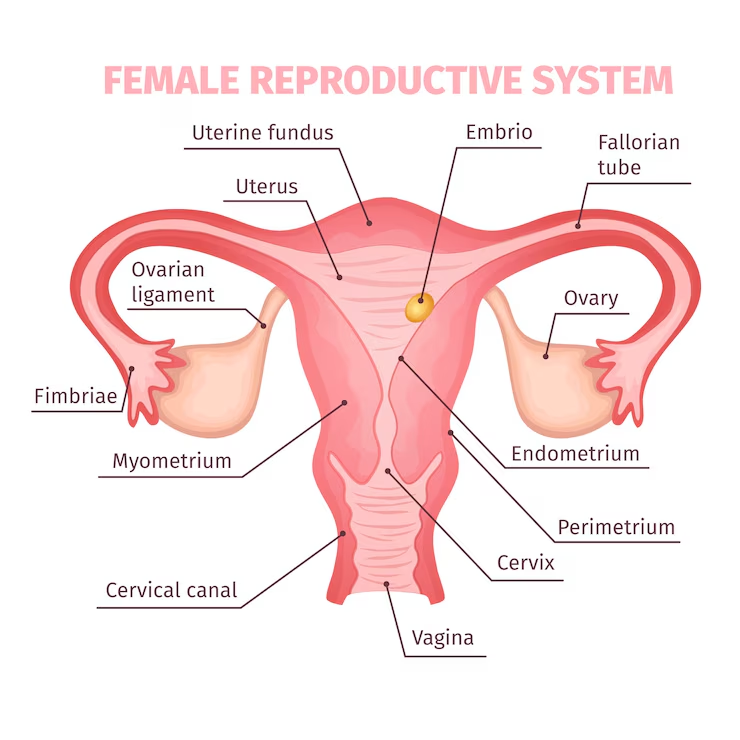PCOD

What is PCOD?
Polycystic Ovarian Disease (PCOD) is a common hormonal disorder affecting women of reproductive age. It is characterized by the presence of multiple small cysts on the ovaries and can lead to various symptoms and health issues.
Symptoms of PCOD
- Irregular menstrual cycles
- Excessive hair growth (hirsutism) on the face, chest, and back
- Acne and oily skin
- Weight gain, especially around the abdomen
- Thinning hair or hair loss
- Darkening of the skin, particularly along neck creases, groin, and under breasts
- Difficulty getting pregnant (infertility)
Causes of PCOD
The exact cause of PCOD is unknown, but several factors may contribute:
- Genetics: A family history of PCOD or related conditions.
- Insulin Resistance: High levels of insulin can increase androgen production, leading to symptoms.
- Hormonal Imbalance: An imbalance in reproductive hormones, such as increased levels of androgens (male hormones).
- Inflammation: Low-grade inflammation can stimulate polycystic ovaries to produce androgens.
Complications of PCOD
- Type 2 diabetes or prediabetes
- High blood pressure
- High cholesterol and triglycerides
- Sleep apnea
- Depression and anxiety
- Endometrial cancer (due to prolonged absence of ovulation)
Management and Treatment
- Medication: Birth control pills to regulate menstrual cycles, anti-androgens to reduce excessive hair growth, and insulin-sensitizing drugs like metformin.
- Lifestyle Changes: Weight loss through a balanced diet and regular exercise can significantly improve symptoms and reduce the risk of long-term complications.
- Diet: A diet rich in whole grains, lean proteins, fruits, and vegetables, and low in refined carbohydrates and sugars.
- Physical Activity: Regular exercise to maintain a healthy weight and improve insulin sensitivity.
- Stress Management: Techniques such as yoga, meditation, and adequate sleep to reduce stress levels.
Living with PCOD
Managing PCOD requires a comprehensive approach that includes medical treatment, lifestyle changes, and regular monitoring. With proper management, women with PCOD can reduce symptoms, improve their quality of life, and lower the risk of complications.
Preventive Measures
While PCOD cannot be entirely prevented, maintaining a healthy lifestyle can help manage symptoms and reduce the risk of developing related health issues:
- Healthy Diet: Emphasize whole foods, limit processed foods and sugars.
- Regular Exercise: Aim for at least 30 minutes of moderate activity most days.
- Regular Health Check-Ups: Monitor blood pressure, cholesterol, and blood glucose levels.
- Weight Management: Maintain a healthy weight through a balanced diet and physical activity.

